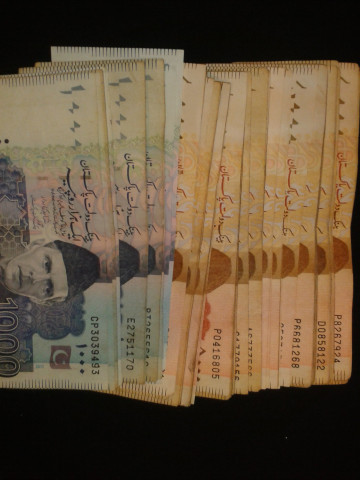Turn on the printing press
The government believes that whenever it needs money, it can simply print more without any consequences.

In effect, the government is a reverse Robin Hood: it is robbing the poor to feed the rich. The already wide gap between the rich and poor in Pakistan is getting wider. PHOTO: MARIAM ESSA/EXPRESS

Most economists believe that it is the government’s heavy borrowing from the SBP that has caused inflation in Pakistan to stay at high levels over the past few years. Simply put, when the government increases the amount of money in circulation, it increases the amount of money chasing after the same amount of goods, causing the value of the money to depreciate, or what we commonly call inflation.
The policy of borrowing from the SBP is certainly irresponsible from a purely fiscal perspective. But it also has implications for the socio-economic inequalities in the country that are being perpetuated by the government through its actions. Consider the following: the government’s need to borrow from the central bank arises from the fact that it does not raise enough in taxes from the wealthiest Pakistanis and spends far too much on subsidies that benefit largely the middle class. Its actions, however, create an inflationary effect that hurts the poor the most. In effect, the government is a reverse Robin Hood: it is robbing the poor to feed the rich. The already wide gap between the rich and poor in Pakistan is getting wider.
But while the government’s actions are problematic, it is the opposition’s indifference on this matter that we find most troubling. In this particular case, the government’s actions violate an act of Parliament. This is not the first time that the data regarding the government’s borrowing figures have been released, but hardly any questions have been raised about it in the National Assembly. Why has the opposition not challenged the government’s decisions at the appropriate forum for such matters? Their silence is deeply disappointing.
Published in The Express Tribune, April 4th, 2014.
Like Opinion & Editorial on Facebook, follow @ETOpEd on Twitter to receive all updates on all our daily pieces.



















COMMENTS
Comments are moderated and generally will be posted if they are on-topic and not abusive.
For more information, please see our Comments FAQ